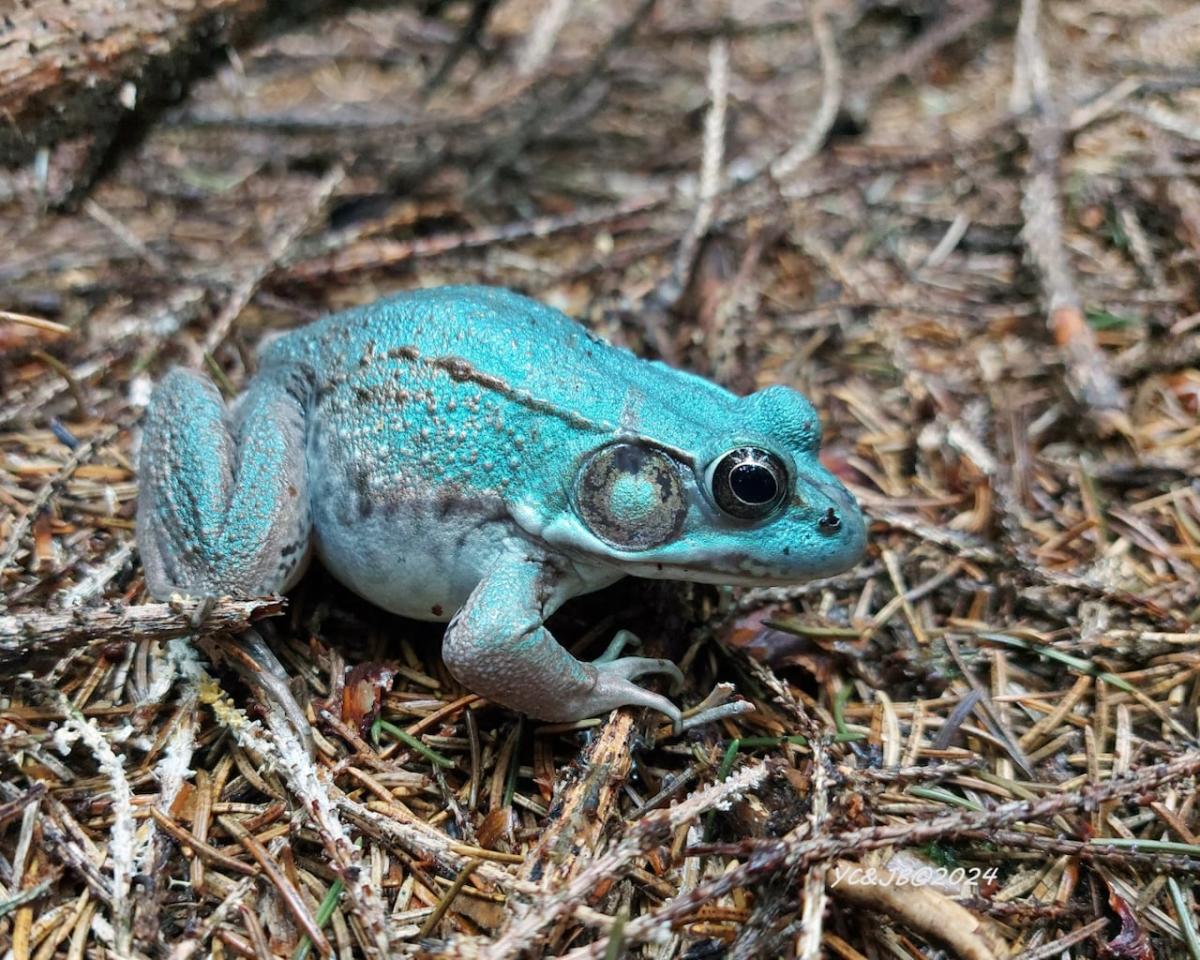A Nova Scotian foraging for mushrooms this month inadvertently stumbled across something much more rare — a blue frog.
Jacinthe Belliveau was hiking close to her home in River Philip, near the town of Oxford in Nova Scotia’s Cumberland County, when she noticed the unusual sight.
“All of a sudden I saw something that was blue and I thought it was a piece of plastic,” she said in an interview with CBC Radio’s Information Morning Nova Scotia on Tuesday. “As I approached, it got closer and closer … so I bent down and was really careful of not disturbing it, and sure enough, it was live.”
She took out her camera, and as carefully as she could, began snapping a few pictures.
“It was the size of a green frog and it was all blue,” said Belliveau.
Typically, green frogs have both yellow and blue pigments, which combine to determine the amphibian’s colour, said Heather McKinnon Ramshaw, a longtime animal care co-ordinator at the Nova Scotia Museum of Natural History.
She said the blue frog spotted by Belliveau appears to have axanthism, a gene mutation that prevents it from producing yellow pigment, thus rendering it blue.
“To have that blue condition is rare,” said McKinnon Ramshaw. “There’s only been a handful of sightings in Nova Scotia.”
Further contributing to its rarity is the reality that unlike green frogs, blue ones can’t help but stand out, making them easier prey.
For a number of years, the Museum of Natural History had a bullfrog that staff nicknamed Tiffany — a nod to the robin’s egg blue associated with Tiffany & Co. — with a similar peculiarity.
It was brought to the museum after it was found in Wallace Bay, also in Cumberland County.
Although blue frog sightings are uncommon, McKinnon Ramshaw said there’s nothing to be afraid of if you spot one in the wild.
“Sometimes people are kind of frightened of them, because they think that they’re maybe a potentially venomous species,” she said. “They’re just a different colour … it’s not a new species.”
MORE TOP STORIES

